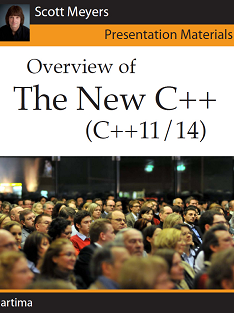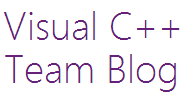How the C++ Compiler Decides to Move Objects -- Andrew Koenig
 Recently at Dr. Dobb's:
Recently at Dr. Dobb's:
How the C++ Compiler Decides to Move Objects
by Andrew Koenig
From the article:
After reading this post, you should be able to figure out what
std::movedoes, although not necessarily how it does it...

 C++14 is still very much a draft -- it only became feature-complete in April and is now in its primary comment ballot. But interest in this new standard is high, with a restarted
C++14 is still very much a draft -- it only became feature-complete in April and is now in its primary comment ballot. But interest in this new standard is high, with a restarted  The Visual C++ Team Blog has been publishing an article series about optimizations that C++ compilers perform for you under the covers to make your code more efficient. This short nugget answers a question people sometimes ask: "What's constant folding, and why do I care?"
The Visual C++ Team Blog has been publishing an article series about optimizations that C++ compilers perform for you under the covers to make your code more efficient. This short nugget answers a question people sometimes ask: "What's constant folding, and why do I care?"